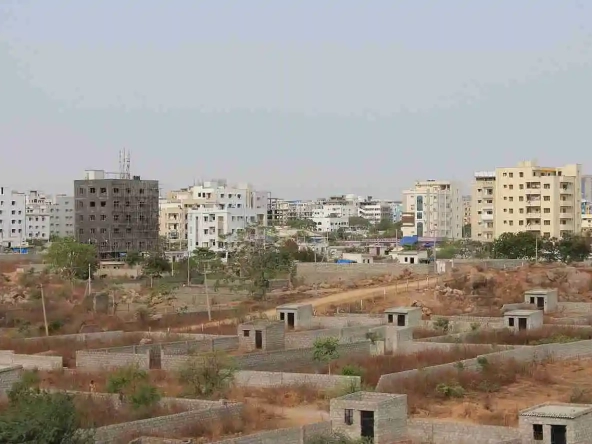The Indian property market is becoming popular day by day because of NRI investors. As an NRI, if you are living abroad but may have planned to return to India in your golden years, you may have to buy a property in India. It is definitely a significant investment for you.
Well, the good news is that you can buy residential and commercial property in India and also apply for home loans.
Anyways, note that purchasing and acquisition of immovable properties in India by non-residents are mainly governed by the Foreign Exchange Management Act (FEMA) and which is administered by the Reserve Bank of India (RBI). So, you may have to follow certain regulations.
Buying property in India as an NRI is complicated if you don’t know the rules. So, before buying any property, you should learn the steps, rules, laws etc. In this blog, we will discuss them.
First, we will talk about the property types that NRIs can buy. Next, we will mention the documents that an NRI requires to buy a property in India. Also, you will learn about
Property types that NRI can buy in India:
If you are an NRI, you cannot purchase any agricultural land, farmhouse or plantation property. You can have ownership of such property only if they have been inherited, which means to receive as an heir at the death of the previous holder.
| Property Type | Buying Inheritance | Buying Residential Property | Buying Commercial Property | Buying Agricultural Land | Buying Farmhouse | Buying Plantation Property |
|---|---|---|---|---|---|---|
| Residential Property | Allowed | Allowed | Allowed | Not Allowed | Not Allowed | Not Allowed |
| Commercial Property | Allowed | Allowed | Allowed | Allowed | Allowed | Allowed |
| Agricultural Land | Not Allowed | Allowed | Allowed | Not Allowed | Allowed | Allowed |
| Farmhouse | Not Allowed | Allowed | Allowed | Not Allowed | Allowed | Allowed |
| Plantation Property | Not Allowed | Allowed | Allowed | Not Allowed | Allowed | Allowed |
As an NRI, you can buy all kinds of immovable properties in India except agricultural land, farmhouses and plantation properties.
If you want to buy agricultural land, plantation property or farmhouse in India, NRIs have to get approval from the RBI and the government.
RBI has recently clarified that NRIs/OCIs are governed by provisions of FEMA 1999 and do not require prior approval of RBI for the acquisition and transfer of immovable property in India other than agricultural land/farmhouse/ plantation property.
If a Resident owning a property in India becomes an NRI, he or she can continue holding the property. They can also let out their property on rent, irrespective of when it was acquired.
Documents Required for NRI to Buy Property in India
In order to buy property, you must submit a number of documents, so it is very important to make sure all the documents are in hand before you begin the process.
Some of the documents, for example-
- Title deed
- Older title deed
- Mutation extract
- Tax receipt
- Approved plan
- Building permit, etc
Checking past property documents (at least for the last 15-20 years) with the help of an expert is good for avoiding future issues. Even if you book Or buy an apartment, it is a must to check past property documents.
Documents Needed for Registration:
- Passport or OCI card: you will have to show your Indian passport.
- PAN (Permanent Account Number) card.
- Current proof of address (like utility bills)- if you do not have a home in India, you may need to submit the address proof of your current residence attested by the Indian Embassy in your country of residence.
- Passport size photographs
- Power of Attorney(if you are not in India during the transaction).
Tax Implications for NRI Buying Property In India
- Whether you are a resident of India buying a property or an NRI, it is liable to pay the required taxes – stamp duty, registration fee, post-purchase annual property taxes and even GST in case of an under-construction property.
- Rental income from property owned in India by an NRI is taxable in the same manner as the resident.
- If the property is sold, it would be to short-term or long-term capital gain tax ( depending on the period of holding).
NRI buying property under Parent’s name
Many NRIs buy property under their parent’s name to minimize travel and legal costs. Here are some points you need to remember.:
- After purchase, the NRI will not have any right on the property and can lead to disputes if your parents have other legal heirs
- This transaction will be considered a gift and may attract gift tax in your country of residence.
- Your parents will be liable to pay tax on any income arising from the property.
Final Words
The above discussed are the several reasons why NRI property investment in India is rising.
Benefits include reasonable prices, high resale value, tax incentives, an easy and quick buying process, etc. With NRIs investing here and due to many other reasons, Indian real estate is expected to grow more in 2023.
However, NRIs from other countries contribute to a major part of the total foreign investment in India. There are also some keen investors from other countries like South Africa, Kenya, Canada, Germany, The United States and Singapore.
If you’re an NRI and plan to invest in real estate in India, don’t think twice. Consult with an expert and start investing today.





